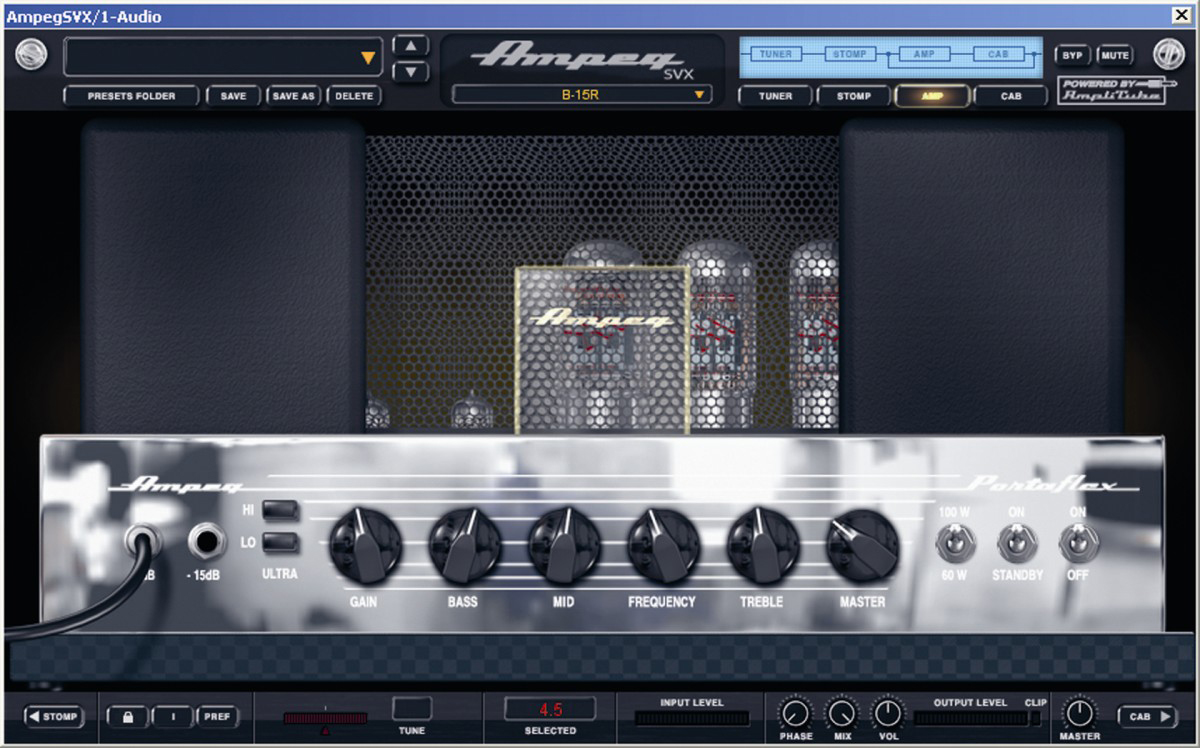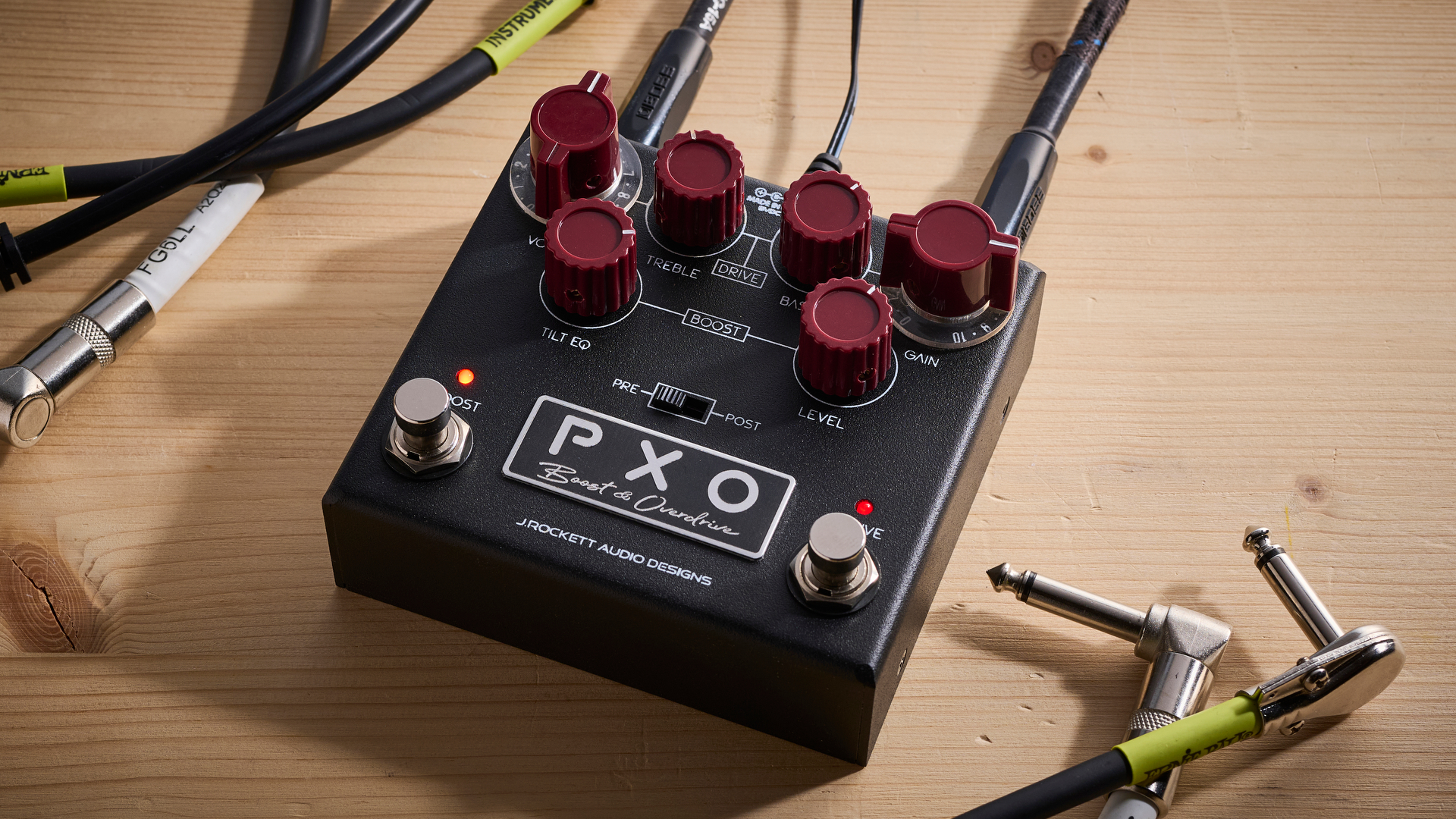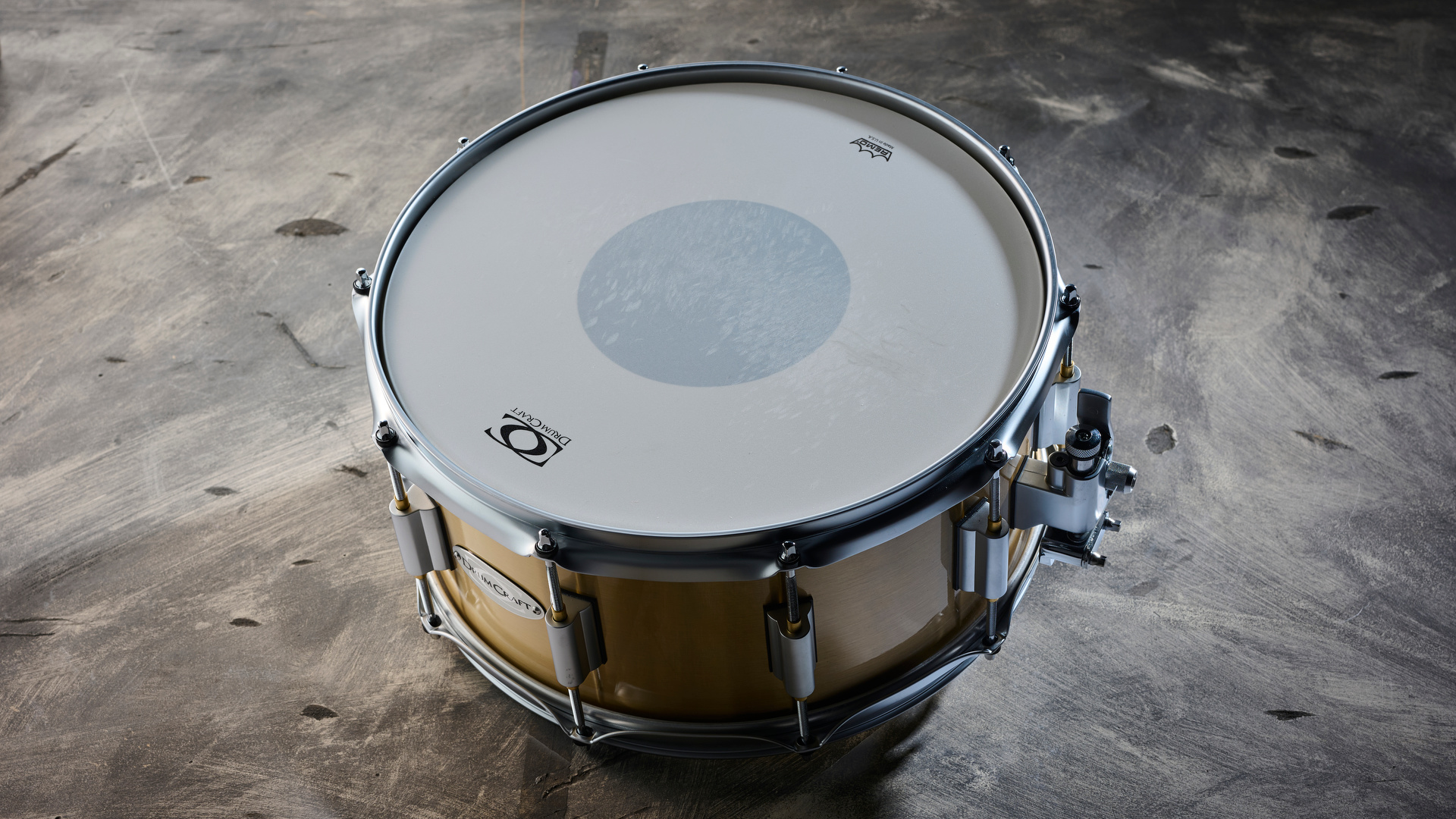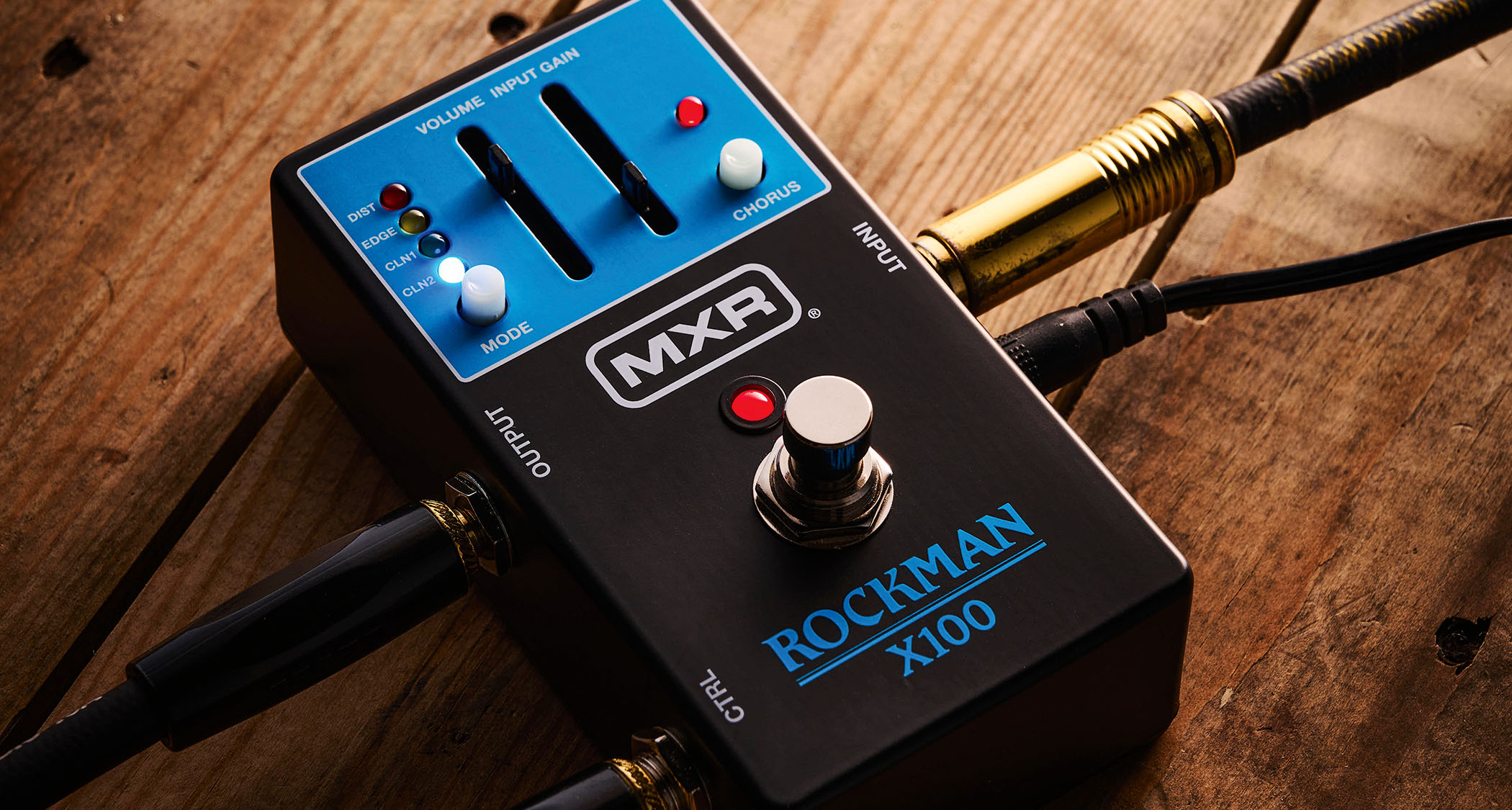MusicRadar Verdict
Ampeg SVX picks up where AmpliTube 2 leaves off. It´s the best way to sculpt massive bass sounds without being issued an ASBO.
Pros
- +
Emulates the best bass gear in the business. You can mix and match amps and cabinets. Excellent selection of virtual mics.
Cons
- -
Easily outperforms your monitoring system!
MusicRadar's got your back


IK Multimedia´s star has undoubtedly been on the rise over the past few months. Of course, products such as SampleTank and T-RackS had already established them as developers to watch closely, but their most recent releases - Miroslav Philharmonik, AmpliTube 2 and Classik Studio Reverb - have utterly surpassed anything they´ve done before.
And so we come to their latest creation. Ampeg SVX is clearly cut from the same technological cloth as AmpliTube 2, and is a collection of premium-quality (and, in the case of the original hardware, premium-priced), physically modelled bass amplification equipment. It was but three issues ago that we were lamenting how bass is often overlooked in music production, and - as if to answer our prayers - Ampeg SVX has come a-knocking (or, more accurately, a-thumping).
In general, bass rigs are physically bigger but less complicated than guitar rig setups. Consequently, although Ampeg SVX is based on AmpliTube 2 technology, its user interface is even simpler. There are only four modules (Tuner, Stomp, Amp and Cab) and there are no routing options. This is because, unlike in AmpliTube, there´s only one instance of each module.
Interface
Taking their lead from the original Ampeg equipment, the graphical displays in SVX aren´t so much greyscale as ‘blackscale´. This means that the plug-in´s user interface is pretty dark, but it´s still sexy and clear enough that you can accurately see the settings of the dials.
As in AmpliTube 2, the dials aren´t MIDI assignable other than through your sequencer´s automation system, and because there´s no standalone version of Ampeg SVX, a host application is a requirement, though there´s no shortage of free VST hosts for those who want to use the software as a live performance tool. Is that a likely scenario? Perhaps more so than you might think. While most guitarists would balk at the idea of not having a real amp on stage, many bass players - even at heavyweight, full-size rockconcerts - are quite willing to plug straight into the PA. This is because bass spreads very evenly, giving fewer monitoring problems than guitarists experience
With Ampeg SVX, live bass performers can have the best of both worlds: the convenience of plugging directly into a PA coupled with the unique tones and heritage of some unquestionably classic bass rig systems.
Models
As you might expect, you can mix and match the four amp models (BA-500, B-15R, SVT-CL and SVT-4PRO) with any of the six cabinet models (B-15R, BA-500, BXT-410H, PB-212H, SVT-410H and SV-T810E). You can also make a selection from the virtual mic cabinet, with models of the AKG C-414 and D-20, Sennheiser MD-421, Shure SM57, the near-indestructible Electro-Voice RE-20, and the microphone king that is the Neumann U87. The final output is stereo, but using the adjustable ambient field, you can run the plug-in in mono too.
You also get a selection of stomp boxes. These are well-voiced for bass, with the chorus pedal, for example, giving you instant access to that classic, swirling ‘ballad bass´ sound. There´s also a delay, an auto-filter, a compressor, a volume pedal, a bass wah, an octave divider, and a surprisingly usable overdrive pedal.
So how does it all sound? In a word, perfect. Everything that you´d expect to be able to do with a bass rig, you can do here. However, many (perhaps even most) home-based production teams may hit a pretty big problem when it comes to using Ampeg SVX: the limits of their own studio environment. The unfortunate truth is that the amplifiers and speaker cabinets modelled by Ampeg SVX are so good that they significantly outperform the limited bass capabilities of most people´s monitoring systems.
You can dial up any of Ampeg SVX´s presets in the full confidence that it accurately simulates some of the best bass equipment in the business, but unless your studio is equipped with some seriously heavy-duty speakers, you´ll neither fully appreciate the results, nor be in a position to modify them reliably.
Upgrade
So although Ampeg SVX is an excellent product, you might be best upgrading your monitoring system before buying, if your budget (and neighbours!) will allow. Otherwise you might be doing your music more harm than good by using it. This problem is nothing to do with SVX itself, of course - this is simply a word of warning before you part with
your cash. When it comes to bass, you really don´t want to be flying blind.
Speaking of cash, Ampeg SVX represents excellent value for money. Those who buy it will be getting top-class, signature-approved physical modelling at a price that´s a mere fraction of what you´d pay for the original hardware.
For those who want to create sophisticated bass sounds, Ampeg SVX is truly beyond fault. Simple, practical and useful, it will surely find favour among all who use it.
MusicRadar is the number 1 website for music makers of all kinds, be they guitarists, drummers, keyboard players, djs or producers...
GEAR: We help musicians find the best gear with top-ranking gear round-ups and high- quality, authoritative reviews by a wide team of highly experienced experts.
TIPS: We also provide tuition, from bite-sized tips to advanced work-outs and guidance from recognised musicians and stars.
STARS: We talk to musicians and stars about their creative processes, and the nuts and bolts of their gear and technique. We give fans an insight into the actual craft of music making that no other music website can.
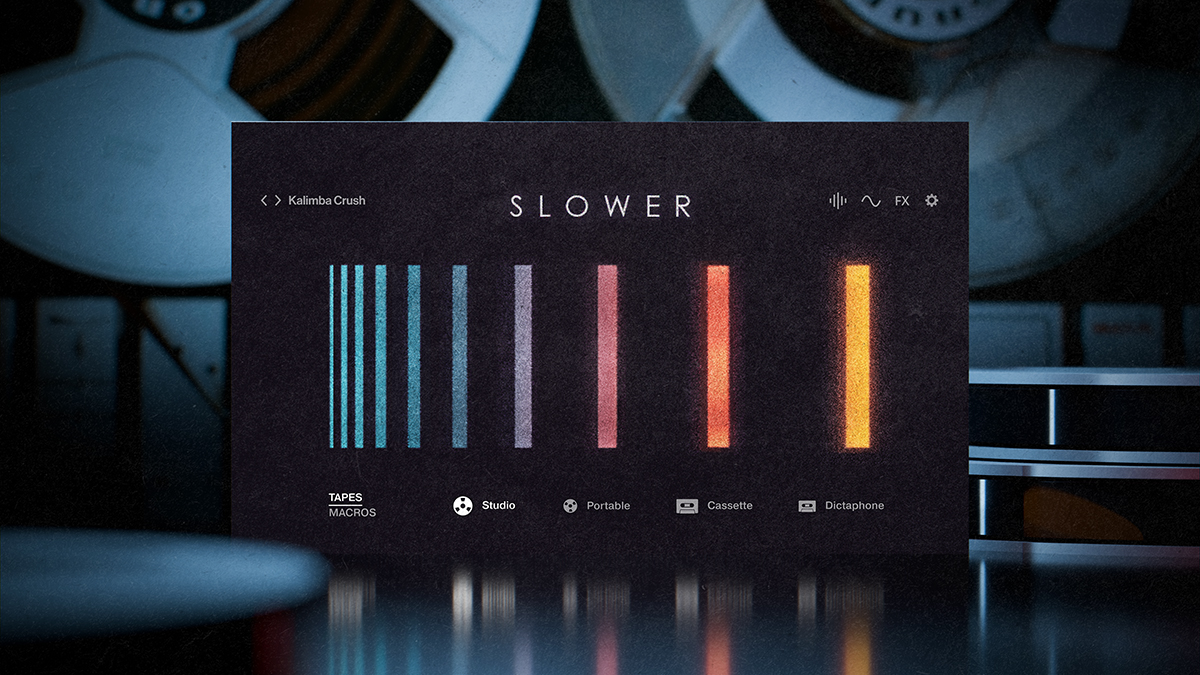
e-instruments’ Slower is the laidback software instrument that could put your music on the fast track to success

“I like guitars that don’t just appeal to metal players”: Jackson and Bring Me The Horizon’s Lee Malia team up for the Pro Series LM-87, a shreddable Surfcaster-style electric with a humbucker/P-90 pairing

“Just so if ever that happens again, I’m like ‘here’s the proof that I wrote it’”: Ed Sheeran reveals that post-copyright cases, he now films every recording session
